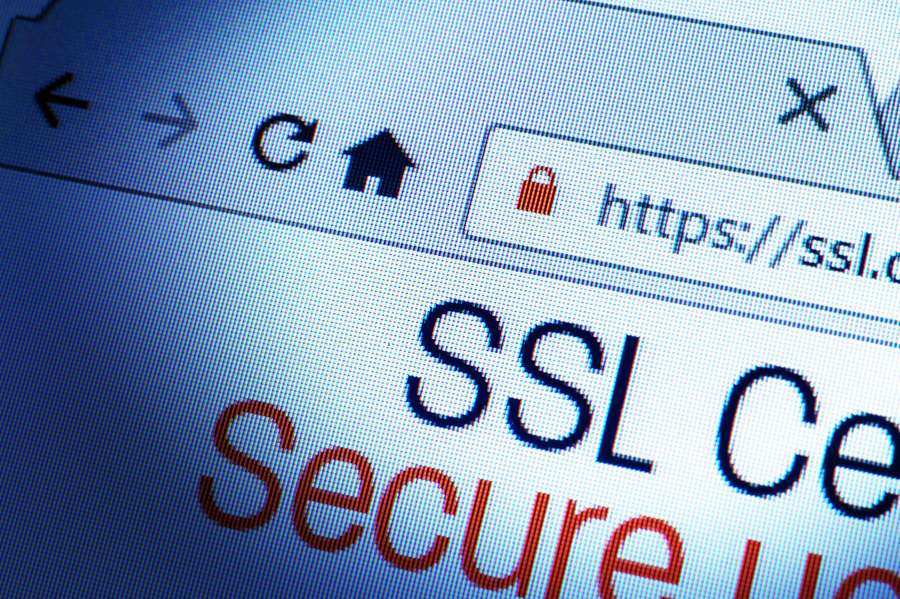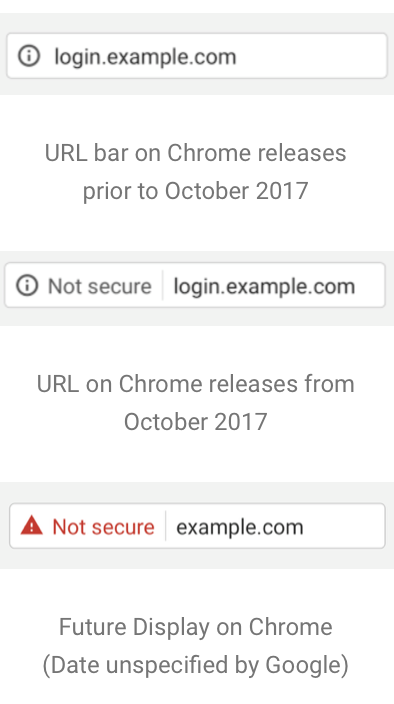SSL Basics: What You Need to Know
What is SSL? And do you really need it for your website?

Here at Avelient, we have a longstanding philosophy—we won't sell a service to any customer if we don't feel that it will truly provide significant value for its cost.
Until recent developments, SSL fell squarely into the category of appropriate for some, unnecessary for most who host their website with us.
What is SSL?
SSL, or Secure Socket Layer, encrypts data between your browser and the web server that hosts the page you're viewing.
It's a method for ensuring that what you're seeing is what you should be seeing and that any data you send can't be intercepted and read by anything other than the website you're viewing.
This is especially important for web forms that collect sensitive data, such as your Social Security Number, a password, or your birth date.
Most of our customers don't collect sensitive data on their website, and SSL certificates were expensive to purchase and maintain, so we only recommended it for customers when it was absolutely necessary.
But times they are a-changin'.
Recent developments in the industry have forced us to reexamine our stance on SSL, and we are now recommending this service to all of our customers, regardless of what information they collect on their websites.
There are several reasons behind this, but I've highlighted what we feel are the most compelling reasons below.
Google is pushing for SSL
Google has been pushing changes in different ways that indicate to us that having SSL is becoming a best practice for all websites.
They're doing this in 2 ways:
 SSL has become a ranking factor for Google in recent years, meaning that your organic placement is affected by whether you have SSL. It's been a pretty low-level ranking factor thus far, but we believe that it won't be much longer before its significance increases.
SSL has become a ranking factor for Google in recent years, meaning that your organic placement is affected by whether you have SSL. It's been a pretty low-level ranking factor thus far, but we believe that it won't be much longer before its significance increases.- The Google Chrome browser is starting to display sites without SSL as insecure in the address bar (see image on right). Right now, it's subtle. But eventually, there will be a bright red "Not secure" warning on the address bar for websites that don't have a certificate. This, we believe, will have a significant impact on website conversions, and customers will eventually become wary of websites that don't transmit data through secure connections.
Both of these are results of Google's HTTPS Everywhere initiative, an attempt to make secure websites a best practice for the industry.
SSL is less expensive.
As a result of the changes that are occurring, the demand for SSL is higher, allowing hosting companies to find new and more efficient ways to implement the service.
At Avelient, SSL is available to all of our network websites and most standalone websites for $60/year now. By comparison, we used to charge $200/year for a certificate, and we would often need to charge a setup fee. Contact us if you want us to check if your website is hosted with us.
Cyber Insurance will cost less for you if you have SSL.
Many of our customers who transmit data through their websites carry Cyber Insurance to protect themselves from the possibility of somebody stealing customer data.
Premiums for this type of service can be pretty high, but if you get SSL for your website you can reduce your premium.
Our recommendation: Get SSL
The trend in the industry is clear, and the cost to begin service is really no longer prohibitive to small companies. Implementation for many websites is straightforward, and there is little more a hosting company would need from you other to say, "I want SSL for my website." And the benefit to your website visitors is more confidence that their data is secure as it gets transmitted to you.
If you host with us and are ready to get SSL for your website, get in touch. Or, if you're not hosting with us, contact your hosting provider about your options.
It's really the secure thing to do.